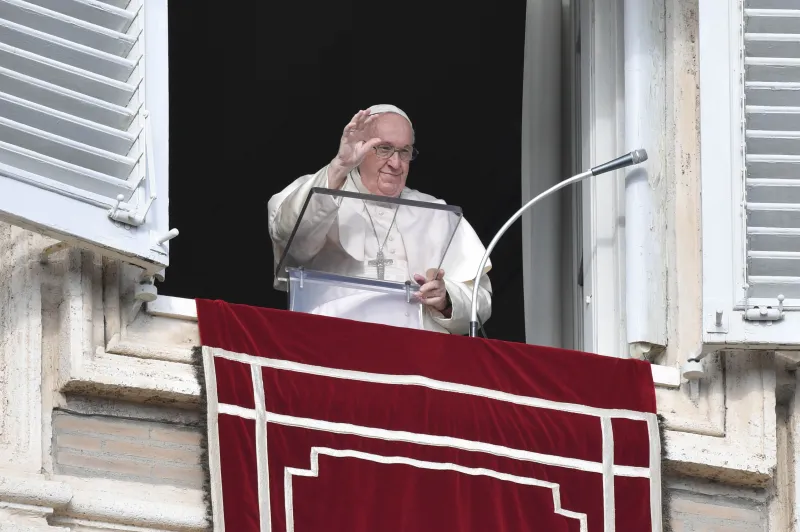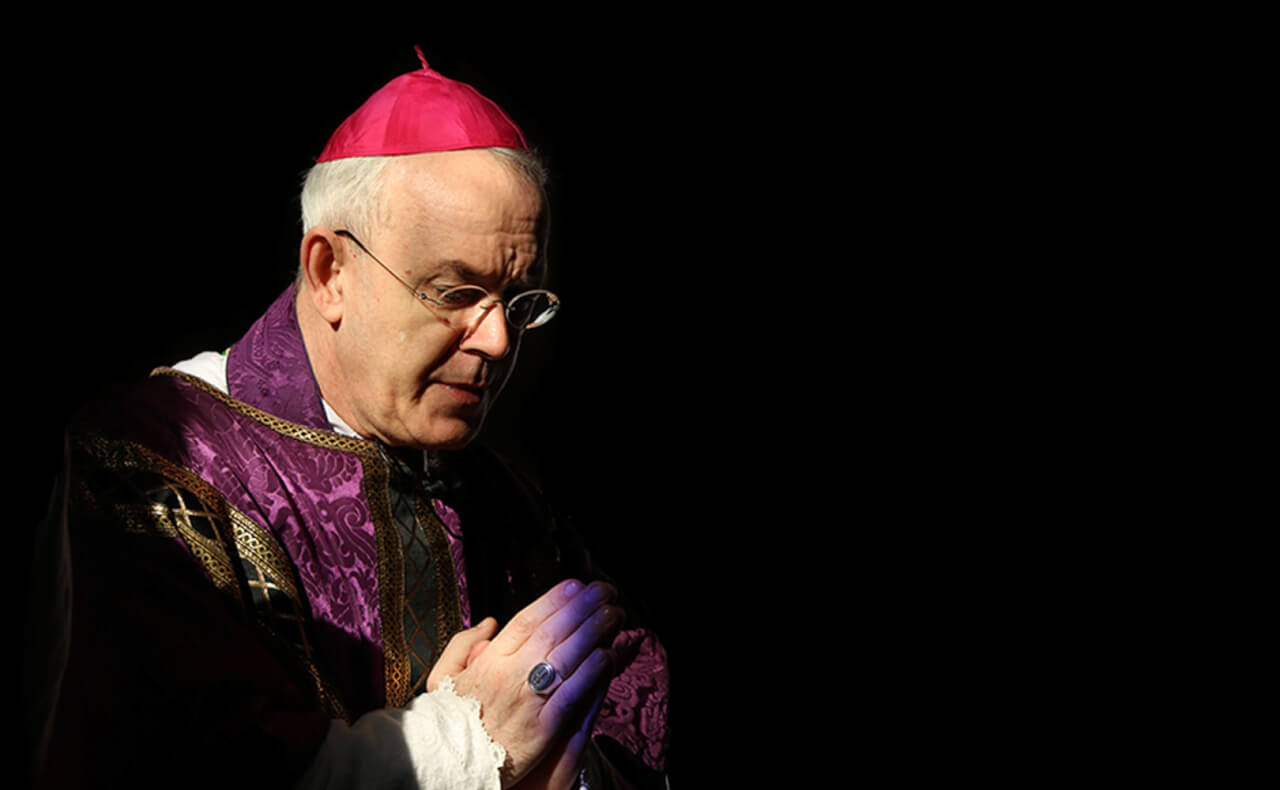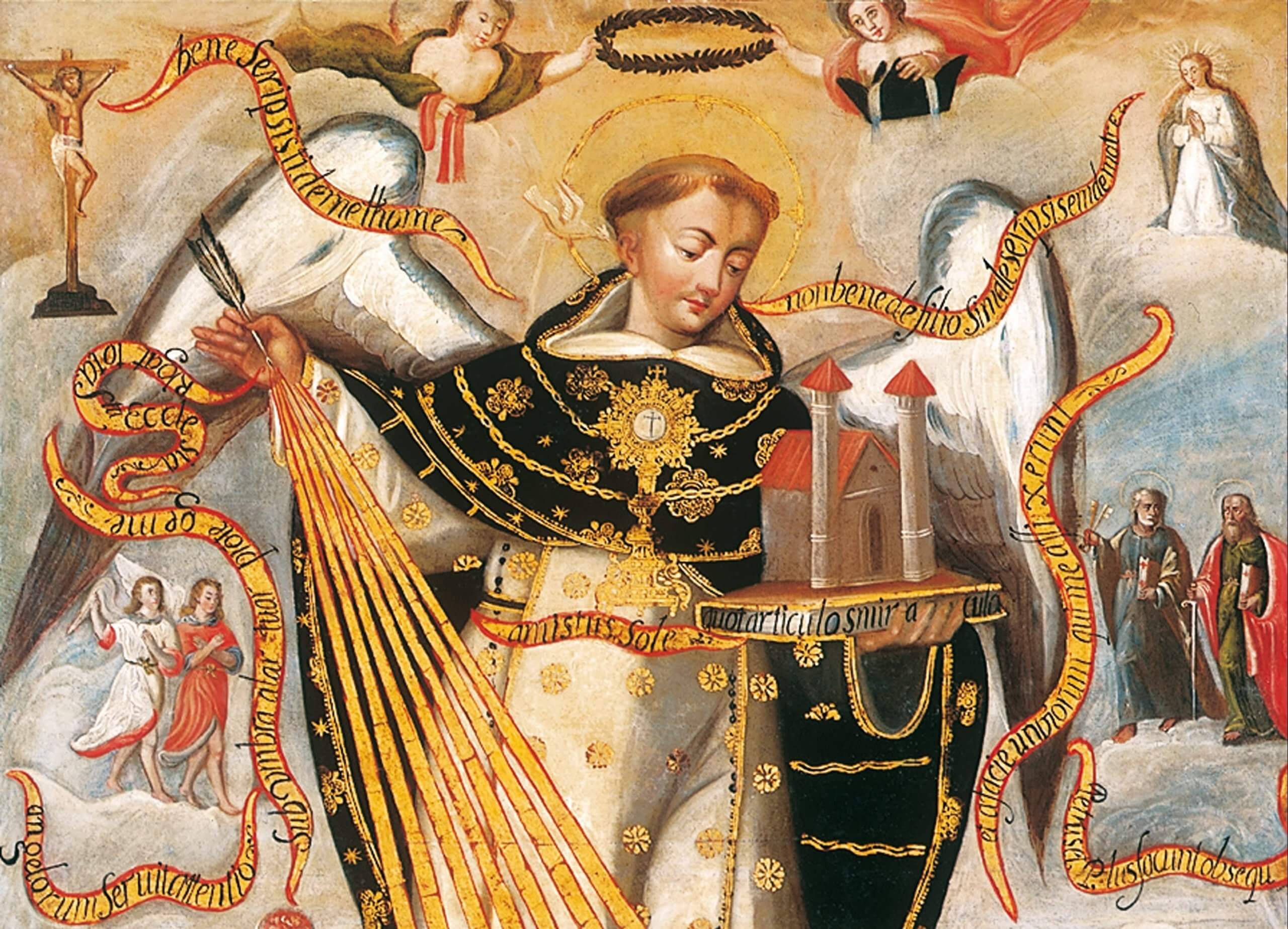Pope Francis: Let Mary teach you what to do in the new year
Pope Francis' Angelus message on Jan. 1, 2023, marked the Solemnity of the Blessed Virgin Mary, the Mother of God. An estimated 40,000 people gathered in St. Peter's Square for the event. / Vatican Media Rome Newsroom, Jan 1, 2023 / 08:31 am (CNA). Let Mary, the Mother of God, be your guide in the new year, Pope Francis said on Sunday, the first day of 2023.In his Angelus address before a crowd of an estimated 40,000 people in St. Peter’s Square Jan. 1, the pope said: “As we contemplate Mary in the stable where Jesus was born, let us ask ourselves: What languages does the Holy Virgin use to speak to us? How does Mary speak?”“What can we learn from her for this year that is dawning?” he added. “We can say: Virgin Mary, teach us what we should do this year.”The pope’s message preceding the Angelus prayer was delivered on the Solemnity of the Blessed Virgin Mary, the Mother of God. Pope Francis also celebrated Mass in St. Peter’s Basilica earlier in the day to mark the feast day.At the beginning of his Angelus message, Pope Francis remembered his predecessor, Benedict XVI, who died on Dec. 31 at the age of 95.Echoing his words at Mass Sunday, he invited Catholics to invoke the Virgin Mary’s intercession for Benedict. “Let us all join together, with one heart and one soul, in thanking God for the gift of this faithful servant of the Gospel and of the Church,” he said.‘The language of love’His Angelus reflection focused on the “language of Mary,” specifically her tenderness and care for the baby Jesus.The Gospel of Luke describes the shepherds’ encounter with the Holy Family and how they saw the infant Jesus “lying in the manger.”“This verb ‘to lay’ means to carefully place, and tells us that the language proper to Mary is maternal: She tenderly takes care — this is the language of Mary — to tenderly take care of the Child. This is Mary’s greatness,” he said.He described a noisy scene: the angels celebrating Christ’s birth and the shepherds running to meet Jesus with everyone loudly praising God.Instead, “Mary does not speak,” Francis said, “she does not steal the show — we like to steal the show! On the contrary, she puts the Child in the center, she lovingly takes care of him.”The pope recalled a line of poetry from the Italian writer Alda Merini, which says that Mary “even knew how to be solemnly mute, [...] because she did not want to lose sight of her God.” All mothers do the same, he said: “After having carried the gift of a mysterious prodigy in her womb for nine months, mothers constantly put their babies at the center of their attention: They feed them, they hold them in their arms, they tenderly lay them down in the crib.”The Mother of God’s language is “a language of a mother,” he added.Mary, Pope Francis said, “reminds us that, if we truly want the New Year to be good, if we want to reconstruct hope, we need to abandon the language, those actions and those choices inspired by egoism, and learn the language of love, which is to take care.”He continued: “This is the commitment: to take care of our lives, of our time, of our souls; to take care of creation and the environment we live in; and even more, to take care of our neighbor, of those whom the Lord has placed alongside us, as well as our brothers and sisters who are in need and who call for our attention and our compassion.”

 Pope Francis' Angelus message on Jan. 1, 2023, marked the Solemnity of the Blessed Virgin Mary, the Mother of God. An estimated 40,000 people gathered in St. Peter's Square for the event. / Vatican Media
Pope Francis' Angelus message on Jan. 1, 2023, marked the Solemnity of the Blessed Virgin Mary, the Mother of God. An estimated 40,000 people gathered in St. Peter's Square for the event. / Vatican Media
Rome Newsroom, Jan 1, 2023 / 08:31 am (CNA).
Let Mary, the Mother of God, be your guide in the new year, Pope Francis said on Sunday, the first day of 2023.
In his Angelus address before a crowd of an estimated 40,000 people in St. Peter’s Square Jan. 1, the pope said: “As we contemplate Mary in the stable where Jesus was born, let us ask ourselves: What languages does the Holy Virgin use to speak to us? How does Mary speak?”
“What can we learn from her for this year that is dawning?” he added. “We can say: Virgin Mary, teach us what we should do this year.”
The pope’s message preceding the Angelus prayer was delivered on the Solemnity of the Blessed Virgin Mary, the Mother of God. Pope Francis also celebrated Mass in St. Peter’s Basilica earlier in the day to mark the feast day.
At the beginning of his Angelus message, Pope Francis remembered his predecessor, Benedict XVI, who died on Dec. 31 at the age of 95.
Echoing his words at Mass Sunday, he invited Catholics to invoke the Virgin Mary’s intercession for Benedict. “Let us all join together, with one heart and one soul, in thanking God for the gift of this faithful servant of the Gospel and of the Church,” he said.
‘The language of love’
His Angelus reflection focused on the “language of Mary,” specifically her tenderness and care for the baby Jesus.
The Gospel of Luke describes the shepherds’ encounter with the Holy Family and how they saw the infant Jesus “lying in the manger.”
“This verb ‘to lay’ means to carefully place, and tells us that the language proper to Mary is maternal: She tenderly takes care — this is the language of Mary — to tenderly take care of the Child. This is Mary’s greatness,” he said.
He described a noisy scene: the angels celebrating Christ’s birth and the shepherds running to meet Jesus with everyone loudly praising God.
Instead, “Mary does not speak,” Francis said, “she does not steal the show — we like to steal the show! On the contrary, she puts the Child in the center, she lovingly takes care of him.”
The pope recalled a line of poetry from the Italian writer Alda Merini, which says that Mary “even knew how to be solemnly mute, [...] because she did not want to lose sight of her God.”
All mothers do the same, he said: “After having carried the gift of a mysterious prodigy in her womb for nine months, mothers constantly put their babies at the center of their attention: They feed them, they hold them in their arms, they tenderly lay them down in the crib.”
The Mother of God’s language is “a language of a mother,” he added.
Mary, Pope Francis said, “reminds us that, if we truly want the New Year to be good, if we want to reconstruct hope, we need to abandon the language, those actions and those choices inspired by egoism, and learn the language of love, which is to take care.”
He continued: “This is the commitment: to take care of our lives, of our time, of our souls; to take care of creation and the environment we live in; and even more, to take care of our neighbor, of those whom the Lord has placed alongside us, as well as our brothers and sisters who are in need and who call for our attention and our compassion.”














